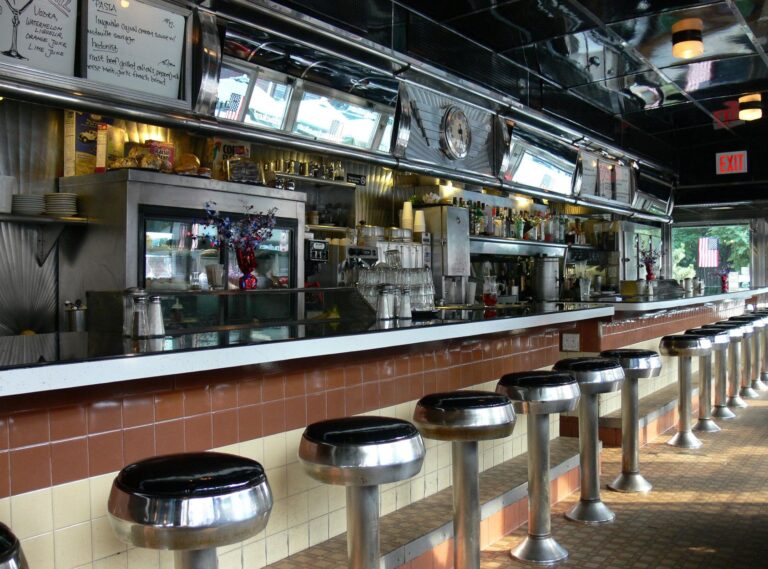Restaurant Lease Negotiations: 3 Critical Strategies for Better Terms

Restaurant Lease Negotiations: 3 Critical Strategies for Better Terms
Restaurant owners across the country often face challenging lease negotiations that can impact their business success for years to come. Recent data shows that professional lease negotiations can save restaurant operators tens of thousands of dollars while securing better terms and protections. Understanding these crucial strategies can make the difference between a burdensome lease and one that supports business growth.
The Common Mistake in Restaurant Lease Negotiations
Many restaurant operators approach lease negotiations with a fundamental misunderstanding. They view landlords as business partners and accept “standard” terms without question. This perspective often leads to unfavorable agreements that can burden a restaurant’s profitability for years. Professional lease negotiators consistently report that restaurant owners who negotiate without expertise frequently overpay on base rent, miss out on improvement allowances, and accept unnecessary liability that could have been avoided.
Key Strategy #1: Understanding “Standard” Lease Documents
When landlords present “standard” lease documents, restaurant owners should understand that these documents are typically designed to protect the property owner’s interests. National property management companies often use these documents as starting points, not final terms. Every clause in these agreements is negotiable, despite what landlords might suggest.
The most successful negotiations occur when restaurant owners recognize that today’s agreement must protect against future changes in property ownership. What seems like a friendly arrangement with a current landlord can become problematic if the property changes hands. Professional review of these documents often reveals hidden obligations that could significantly impact a restaurant’s bottom line.
Key Strategy #2: Negotiating for Maximum Value
Successful restaurant operators should approach negotiations with a comprehensive understanding of available opportunities. Property owners value established restaurants as tenants and often have significant flexibility in their offerings. The key is knowing what to ask for and how to present these requests.
Essential negotiation points include Tenant Improvement (TI) allowances, kitchen ventilation systems, and HVAC considerations. Many operators don’t realize they can negotiate for rent-free opening periods or reduced security deposit terms. Construction period considerations should also be carefully outlined in the agreement, as these details can significantly impact a restaurant’s launch or relocation timeline.
Key Strategy #3: Demonstrating Restaurant Value
Professional negotiators emphasize the importance of positioning the restaurant as a valuable asset to the property. This goes beyond simply stating revenue figures. Successful operators demonstrate their value through comprehensive documentation of performance metrics, community involvement, and operational excellence.
The most effective negotiations include strategic property visits during peak hours, allowing potential landlords to witness firsthand the professional service standards and customer flow patterns that make a restaurant successful. Community engagement examples and staff retention rates provide concrete evidence of operational stability.
Impact of Professional Negotiations
Recent case studies demonstrate the significant advantages of professional lease negotiations. Restaurants utilizing professional services typically see a 15-25% reduction in total lease costs, along with increased landlord improvement allowances. These negotiations also secure better protection clauses and more favorable maintenance terms, while reducing personal liability for owners.
Essential Considerations for Restaurant Leases
A well-negotiated restaurant lease must address several critical areas. Exclusive use provisions protect operators from direct competition within the same property. Operating cost definitions and utility responsibilities should be clearly outlined to prevent future disputes. The agreement should also include clear terms for maintenance obligations, renovation allowances, and signage rights.
Best Practices for Success
Successful lease negotiations begin well before the current lease expires, ideally 6-8 months ahead. All verbal agreements must be documented in writing, and qualified legal counsel should review final terms. Understanding market rates and trends provides crucial leverage during negotiations. Restaurant owners should also consider future growth plans and prepare for various scenarios that could impact their operations.
Looking Ahead: Protecting Your Restaurant’s Future
Professional lease negotiations create a foundation for restaurant success. The terms secured today will impact operations for years to come. Smart operators recognize that investing in professional guidance during lease negotiations typically yields significant returns through better terms, reduced costs, and stronger protections.
Stay Informed About Restaurant Operations
The restaurant industry continues to evolve, and staying informed about best practices in lease negotiations, operations, and management is crucial for success. Join thousands of restaurant operators receiving weekly insights on proven systems, sales strategies, and operational guidance.
[SIGN UP NOW] Access expert advice and industry updates tailored for independent restaurant owners.
